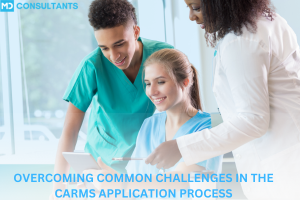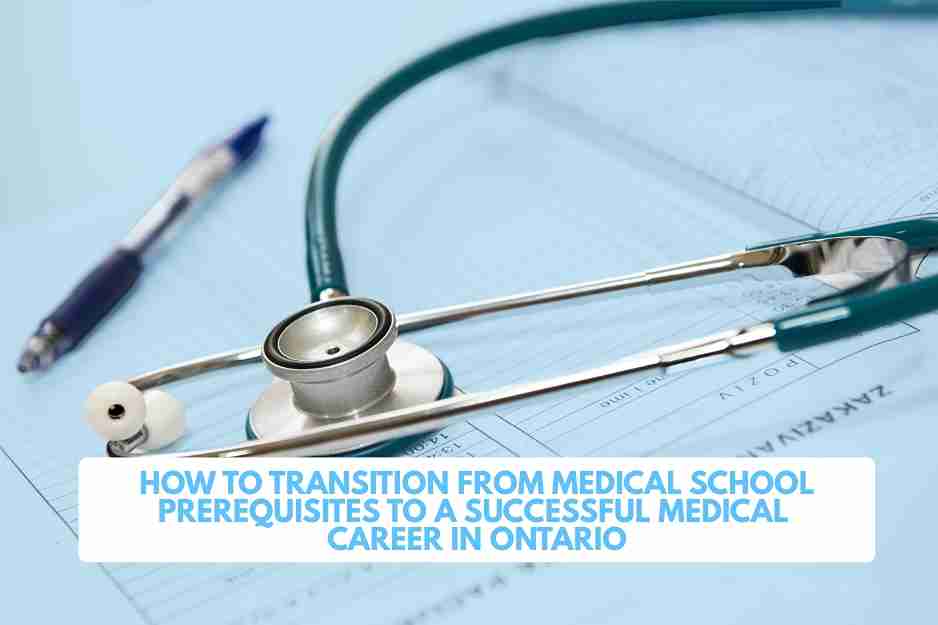Think back to everything you have accomplished over the past four or more years to become the best medical school applicant you can be. How you fill out the AMCAS application may be just as important as those accomplishments. Here are some tips from my experience as a successful (and non-US citizen/permanent resident) applicant.
Tip #1: Target the right schools
If you are not a U.S. citizen/permanent resident, you will be held to tougher admissions standards. Some schools do not accept international students, and other than a handful of top-20 schools (i.e. Harvard, Stanford, Yale), most schools do not provide institutional financial aid to international students.
You cannot change your citizenship; but what can you do?
First, research to find schools with a track record of matriculating institutional students, and schools you could financially afford to enroll in if you were to be accepted (non-institutional financial aid options include MD/PhD programs, and Canadian or provincial government loans).
Next, be strategic in applying to the right tier and number of schools. The AAMC compiles a list of accepted students’ average MCAT/GPA by school. The designation of reach, on-target, and safety schools on your school list should be made according to these two numbers. If you are a non-US citizen/permanent resident, a good rule of thumb is to add 2 points to the AAMC MCAT and 0.1 point to the GPA (source).
Even the best applicants should apply to approximately 20 schools. However, applying to more schools does not guarantee better chances of receiving interview invites; I will elaborate in tip #3.
Tip #2: Make your letter writers’ lives easy
In addition to the committee letter from your university, target to obtain three (2 science, 1 non-science) letters of recommendation (LOR). The best case scenario is that you know all three writers very well, and that they can attest extensively to your academic prowess and character.
But how do you seek quality letters from professors they many not know you very well, if you were just one of handful students who got an “A” in a several-hundred-student introductory science course? Rest assured that most applicants are in your shoes, and many professors have written letters on behalf of students like you.
Set up an in-person meeting to discuss the contents of the letter, and provide them with the following: your personal statement, resume, paragraph detailing how you performed/grew through the professor’s class, and a detailed list of strengths you would like your letter writer to address. Ask each letter writer to elaborate on different strengths you have: the admissions committee does not need to read three letters with the same message, “___ is a talented researcher with the inquisitive mind and drive to be a successful academic physician.”
Tip #3: Write succinctly, and purposefully
Introducing the first two golden rules of AMCAS application: 1) be succinct, and 2) every sentence should convince the admissions committee, “this applicant has the academic competence, focused vision, and good character to become a patient-centered physician.”
Here are recommendations for the three types AMCAS “essays”:
Paragraphs on up to 15 activities you participated in
I recommend writing succinct phrases in bullet point format. Reading dozens of applications per day filled with paragraph after paragraph can be exhausting for admissions committee members. It is unlikely you truly have 15 notable activities to report on the AMCAS (refer to golden rule #2). Consolidate when you can, such as by listing “Awards and Honors” as one activity, and detailing all notable awards and honors you received.
Remember, being the president of a campus club does not demonstrate leadership. Communicating how you led a group through challenges or innovative changes does. Be honest, but it is fine to roughly estimate the number of hours you spent per activity.
Mini-essays on up to 3 “most meaningful” activities
Do write in essay form. Which activities you define to be “most meaningful” itself may be a testament to your values. Again, refer to golden rule #2.
Full essays for the personal statement/secondary essays.
Golden rule #3: start writing now.
Even if you are reading this blog as a freshman, now is the best time to start writing. Reflect on every meaningful experience in writing, and write down every eloquent phrase whenever they come to mind. Good writing takes time to ferment.
The personal statement should be about 1.25 pages (12-point font, single-spaced, and with 1-inch margins). Narrate how you decided to become a physician, what experiences you sought and efforts you made to fit golden rule #2, and demonstrate how excited you are to follow through on your vision as a physician.
Secondary essays are just as important your personal statement, and thus, demand just as much preparation. Many schools will not review your application until these essays have been submitted. Your secondary essays should be completed by the time you submit your AMCAS application. This is why applying to more schools may not necessarily translate to more interview invitations: the more schools you apply to, the more quality essays you will have to write by the same deadline.
Find secondary prompts from previous years (schools rarely change secondary prompts), and start writing now. The prompts fall into the a handful of categories, such as “why do you want to come to our school”, “describe a challenging experience”, and “describe your cultural competence”. You can generally recycle three or four secondary essays (other than “why do you want to come to our school” essays) across most schools.
Tip #4: AMCAS application is all about timing.
Golden rule #4: submit your AMCAS application the first day it can be submitted.
Make sure all supporting documents (committee letters, LOR, verified transcripts) are in by this date. Don’t forget, your secondary essays should be completed by this date as well. Most schools review complete applications, offer interview invitations, and subsequently, admissions decisions, on a rolling basis. It is in your best interest to be in the first batch of reviewed applications.
Remember the four golden rules of completing the AMCAS application, and know that experienced consultants are always here to guide you through the process. Best of luck!


